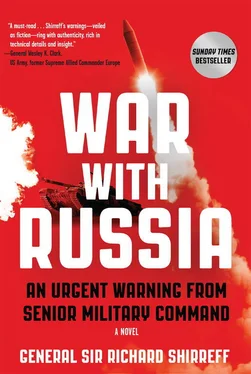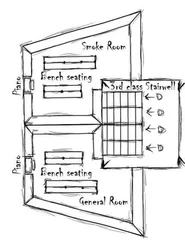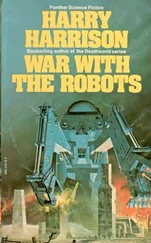Calmly, Balderis took it all in, then turned to Morland.
“Captain, I think you have the general picture? Now, please be so good as to send a detailed report to your country and ask them to pass it on to NATO and the United States of America. There can be no question. Latvia is under attack and we need immediate NATO support.”
1945 hours, Thursday, May 18, 2017
Supreme Headquarters Allied Powers Europe (SHAPE), Mons, Belgium
SERGEANT TAFF JONES of the Royal Logistics Corps eased the armored BMW into the purpose-built garage—the so-called “bat cave”—at the back of the large, gray 1960s building housing NATO’s Strategic HQ. McKinlay pulled himself out of the back seat, where he’d been working on a stack of papers. As he stood, he felt the usual sharp pain where his lower leg had been.
“It could be another long session in the office, Sergeant Jones.”
“No problem, Sir,” responded Jones. “I’ll be stood by whenever you want to head home.”
It had already been a long haul in Brussels. After the walkout by the German and Greek ambassadors in the NAC, there had been a cooling-off session. The NAC had met for an hour and a half in “ambassador-only” mode—with no officials present—during which the Secretary General had apologized for his remarks.
Diplomatic niceties satisfied, the NAC had then reconvened in full session to reconsider the declaration of Article 5, which would trigger the deployment of the Very High Readiness Joint Task Force to Latvia. But the three ambassadors were unmoved and did not consider that events in Latvia warranted the declaration of Article 5. Moreover, such a move, they argued, would be an unnecessary provocation. Before any consideration of military measures, there would have to be a concentrated effort to resolve the crisis by political and diplomatic means.
Without full consensus, Kostilek had been able to do no more than state that he would continue to monitor the situation and confirm they would all meet again tomorrow.
The German ambassador had begun to ask whether even that were necessary, but an angry intervention by the US ambassador led him to withdraw his question.
It was pretty clear to McKinlay that the White House would be leaning heavily tonight on the Chancellor’s office in Berlin, the Bundeskanzleramt—that grandiose piece of modern architecture, ten times the size of the White House, and known with deadpan Berliner humor as the “Elefantenklo” or elephant’s crapper.
McKinlay, again attending in SACEUR’s place, had sat on through the inclusive debate. He needed to brief SACEUR on the nuances of the politics at play, even if he, as DSACEUR, was only responsible for the military implementation of any decisions.
When it had finally finished, he was a worried man. Every professional fiber in his body screamed that unless NATO took immediate action, it would almost certainly be too late. All the indicators pointed to an imminent Russian attack on Latvia and quite possibly Estonia and Lithuania, too. Unless Article 5 was declared right now, NATO would have failed in the one mission for which it had been set up: to come to the aid of a fellow member under attack. Once the Russians were in country they would be almost impossible to dislodge. NATO had to stop the attack happening in the first place and that meant declaring Article 5. Unless NATO started getting credible forces on the ground, it would be game over before it had even started.
With multinational NATO troops in Latvia, the Russians would have to know that firing on Latvian forces would also mean firing on other NATO forces. That might—just might—make them reconsider where this was going to end. Even an Article 5 declaration might not be enough to deter them, although in a saner world and with a different president in charge, it would be. But of one thing McKinlay was now convinced: if it was just Latvians defending Latvia, the Russians would not hesitate. Crimea and Ukraine in 2014 had shown that, as did this new attack on Ukraine right now.
Dammit, he had wanted to shout, as he listened to the ambassadors grandstanding, if anybody here cares to think back to the Russian invasion of Georgia in the “friendly” days of 2008, when the world was swearing peace, brotherhood and the end of war at the Beijing Olympic Games, then that would tell any doubters exactly how the President thought. And what the President planned to do next.
After the meeting he had a one-to-one session with General Vahr, the Danish Chairman of the Military Committee, in the corridor outside.
“Knud, NATO is staring at disaster unless we get things moving. Right now. And yet, without NAC authority, we’re stuck. I’m going back to SHAPE and I’ll call up SACEUR. He needs to know how bad things are. I’ll also call up the Chiefs of Defense of the main contributors to the VJTF and ask them to reduce notice to move bilaterally, on a national basis and not a NATO basis. That way, if… and when, the NAC agree Article Five, we can get it moving to the Baltic states as quickly as possible.”
“It’s a clever move talking to the nations, David.” Vahr was supportive but wary. “However, it’ll backfire if it is seen as an initiative by SACEUR. And it’ll be even worse if it is seen as your initiative. I’ve no doubt the US will be working on the Germans overnight, so I’m confident we’ll eventually get agreement. But the NAC is very sticky about the military getting ahead of the game. Any change of readiness must look as if it has come from the nations themselves. We have to play the long game on this.”
McKinlay opened his mouth to speak, but Vahr held up his hand to stop him. “Before you say anything, I know, David. It may well be far too late by then. But wasn’t it ever so?”
Now back in SHAPE and reflecting on events in Brussels, McKinlay walked up the stairs that took him direct to his office door, entered, and was greeted by Group Captain Jamie Swinton, his Principal Staff Officer. The rest of his front office team of three Military Assistants (German, French and British), his Flag Lieutenant and his PA all stood.
“Sit down, guys,” said McKinlay. “I keep telling you there’s no need to stand when I come into the office.”
“Evening, Sir,” said Swinton, ignoring him and still standing. “The only thing to add to the news of the cyber-attack on Latvia is that the NATO Communications and Information Agency and the Cyber Center of Excellence in Tallinn are all over it at the moment. The boffins are working the wiggly amps to help the Latvians get their systems back up and running. And, by pure chance, I’ve just managed to get a call through to General Balderis’s MA in Riga on my mobile. He’s a chum of mine and I happen to know he has an American mobile and number from his time at Staff College in the States. I tried him on that on the off-chance and got him. You probably want to speak to him before SACEUR?”
“That’s good—well done, Jamie. Put me through.” He went through to his office and sat down.
Swinton followed, handed him his iPhone and pulled up a chair so that he could listen in.
“Raimonds, how’re things? You’re having a tough time.”
Balderis’s voice was clear, albeit he sounded a long way away. He was calm and measured.
“David, my friend. Things are very dangerous here. All our command and control systems are down, but we’re working to get things under control. I feel that we are living through that exercise you ran in Riga last year, Steadfast Pyramid, when we war-gamed an attack on Estonia and its reinforcement by NATO under Article Five. But this time it’s for real. And it’s us and not Estonia. Yet.”
Balderis paused to gather his thoughts and McKinlay guessed his friend was not really as calm underneath as he was showing on the surface. He doubted he would be under similar circumstances.
Читать дальше












